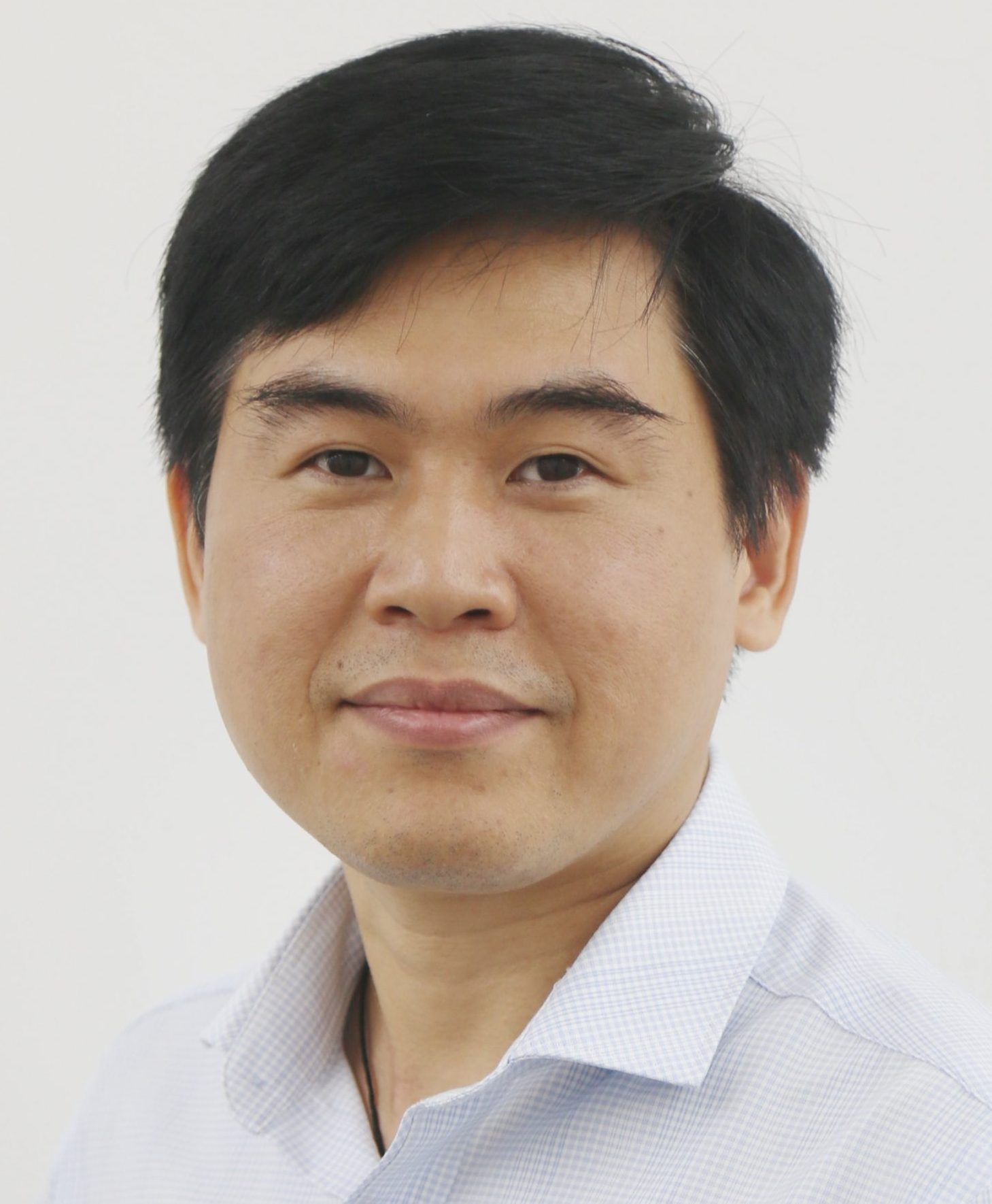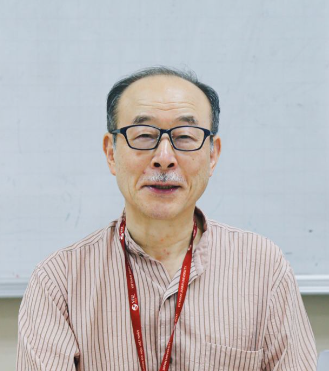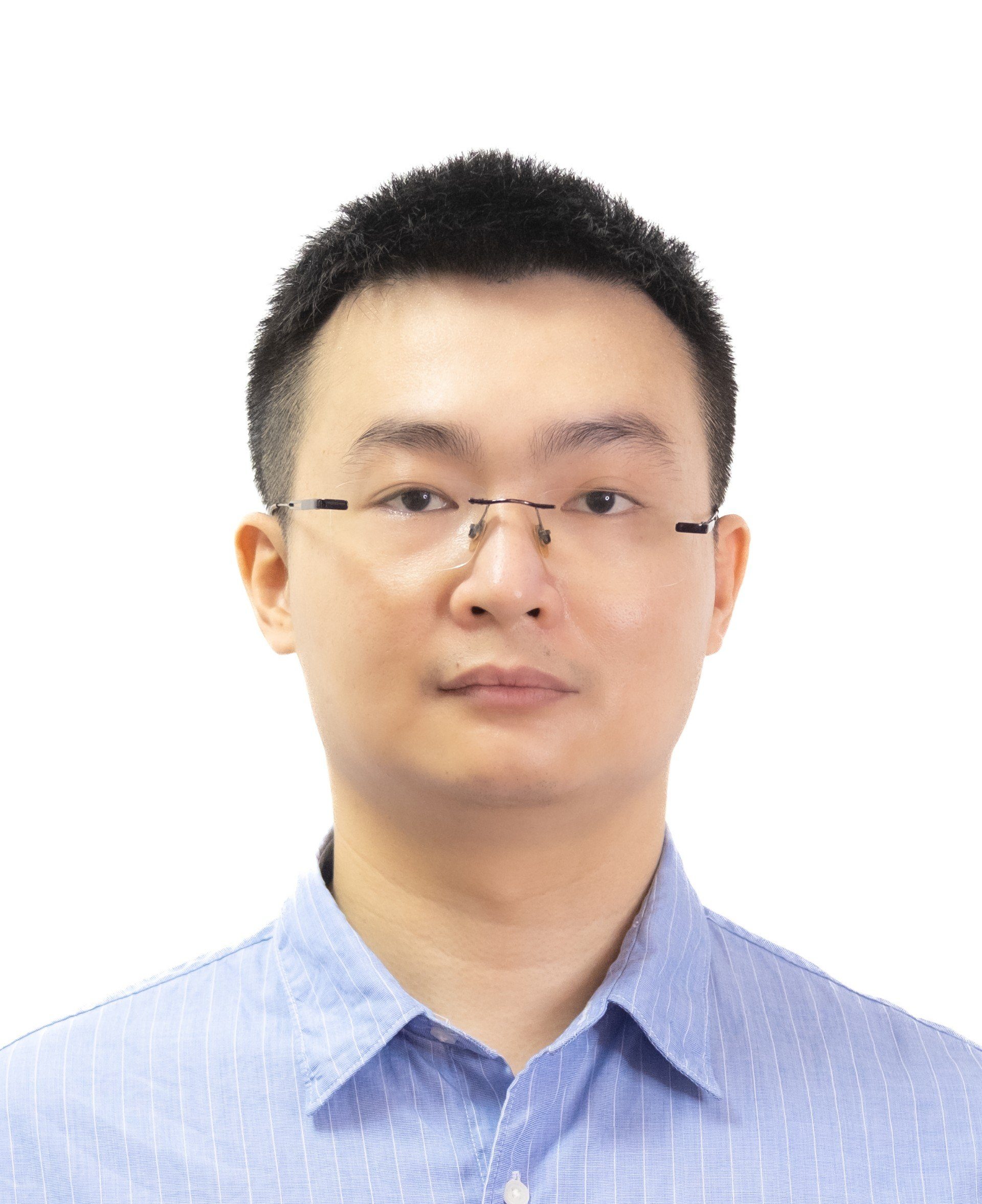INTELLIGENT MECHATRONIC SYSTEM AND JAPANESE MANUFACTURING
INTELLIGENT MECHATRONIC SYSTEM AND JAPANESE MANUFACTURING
1. INTRODUCTION
The undergraduate and graduate integrated program in Intelligent Mechatronic System and Japanese Manufacturing (Mechatronics Engineering) aims to:
- Equip learners with foundational knowledge in mathematics and sciences necessary for understanding specialized fields in mechatronics and precision mechanical engineering. Leaners gain the ability to creatively apply advanced Japanese technologies in addressing technical challenges within the industry and further pursue higher-level research. Additionally, learners acquire organizational and production management skills grounded in the Japanese monozukuri philosophy.
- Develop necessary skills and professional attitudes for interdisciplinary, multicultural, and multinational work environments.
- Foster communication skills, independence, teamwork, and the ability to thrive in international organizations.
- Enable learners to pursue research and advanced academic endeavors domestically or internationally.
- Strengthen English proficiency, equipping learners with specialized language skills for effective collaboration with international colleagues, equivalent to the B2 level.
2. OVERVIEW
Name of training program:
- Vietnamese: Cơ điện tử thông minh và sản xuất theo phương thức Nhật Bản
- English: Intelligent Mechatronic System and Japanese Manufacturing
Code: 7520114
Degree: Engineer/Master
Graduation diploma name:
- Vietnamese: Kỹ sư ngành Kỹ thuật cơ điện tử
- English: The Degree of Engineer in Mechatronics Engineering (Honors Program)
Language of Instruction: Vietnamese with enhanced English content.
Time of educate: 4.5 years (Engineer degree).
3. TUITION AND SCHOLARSHIPS
Tuition Fees: The undergraduate programs at Vietnam Japan University (VJU) are designed as high-quality training programs tailored to the university’s unique characteristics and mission. The tuition fees are determined based on the approved Technical and Economic Norms. Tuition fees applicable to students admitted in the 2023 intake are as follows:
- 58,000,000 VND per student per academic year (paid per semester at 29,000,000 VND each).
- Fees remain unchanged if students adhere to the planned academic schedule.
- Does not include additional costs for admission, retaking courses, or extra services.
Scholarships:
- At least 8% of tuition revenue is allocated for merit-based scholarships, awarded to around 16% of students per class
- Scholarships sponsored by businesses and organizations include Yamamoto, Deha, Pasona Tech, BIDV, and more.
- Access to scholarships managed by Vietnam National University, such as Kumho Asiana, Mitsubishi, Yamada, and others.
4. SPECIALIZATION TRACKS
- Precision Manufacturing
- Intelligent Mechatronic System
- Smart Engineering Materials
5. TRAINING PROGRAM CONTENT
| Course ID | Course Name | Credits |
| PHI1006 | Marxist – Leninist Philosophy | 3 |
| PEC1008 | Marxist – Leninist Political Economy | 2 |
| PHI1002 | Scientific Socialism | 2 |
| HIS1001 | History of Communist Party of Vietnam | 2 |
| POL1001 | Ho Chi Minh Ideology | 2 |
| VJU1001 | Basic Informatics | 3 |
| THL1057 | Basic issues of state and law | 2 |
| VJU1002 | Supplementary Skills | 3 |
| Physical Education | 4 | |
| National Defense Education | 8 | |
| FLF1107 | English B1 | 5 |
| FLF1108 | English B2 | 5 |
| Course ID | Course Name | Credits |
| Foundation course of the field | ||
| Compulsory subjects | ||
| VJU2002 | Mathematics 1 (Calculus) | 2 |
| VJU2030 | Mathematics 2 (Linear Algebra) | 3 |
| VJU2005 | Physics 1 | 2 |
| VJU2007 | Chemistry 1 | 2 |
| VJU2006 | Physics 2 | 2 |
| AET2017 | Mathematical Simulation | 2 |
| JPS3001 | Japanese A1 | 5 |
| VJU2001 | Research Methodology | 2 |
| Elective subjects | ||
| THL2003 | Introduction to Vietnamese Legal System | 4 |
| INE2004 | Principle of Economics | 4 |
| SOC2005 | Introduction of Sociology | 2 |
| MNS2006 | Management Science | 2 |
| VJU2008 | Chemistry 2 | 2 |
| VJU2009 | Biology 1 | 2 |
| VJU2010 | Biology 2 | 2 |
| VJU2011 | Earth Science | 2 |
| Century Integrated Courses | ||
| Compulsory subjects | ||
| AET2015 | Introduction to Computer Systems | 2 |
| VJU2012 | Global and Environmental Sciences | 2 |
| ELECTIVE COURSES: Students select 6 credits from at least 2 out of the 5 course groups listed below, based on consultation with their academic advisor | ||
| Group A | Sustainability science | |
| VJU2013 | Development and Energy in Asia (Energy Economy, Energy Engineering) | 2 |
| VJU2014 | Basic Science of Climate Change | 2 |
| VJU2015 | Food, Water and Health | 2 |
| VJU2016 | Sustainable Development and Security | 2 |
| VJU2017 | Science, Technology and Society | 2 |
| Group B | Globalization and Social Science | |
| VJU2018 | Globalization and Regionalization | 2 |
| VJU2019 | International and Regional Development | 2 |
| VJU2020 | Religion, Culture and Society | 2 |
| VJU2021 | Law and Society | 2 |
| VJU2022 | Business Administration | 2 |
| Group C | Japanese Studies | |
| VJU2023 | Contemporary Issues in East Asia | 2 |
| VJU2024 | Japanese History and Culture | 2 |
| VJU2025 | Japanese and Vietnnamese Business | 2 |
| VJU2026 | Legal System of Japan | 2 |
| VJU2027 | Japanese Society in Comparison with Vietnamese Society | 2 |
| VJU2028 | Vietnam in Comparison with Japan | 2 |
| VJU2029 | Introduction to Teaching Japanese as a Foreign Language | 2 |
| Group D | Information Science | |
| AET2012 | Information Science | 2 |
| AET2013 | Scientific Data Analyses | 2 |
| INE1052 | Econometrics | 2 |
| AET2016 | Computer Algorithms | 2 |
| CSE3003 | Discrete Mathematics | 3 |
| Group E | Engineering for Advanced Studies | |
| AET2018 | Advanced Materials and Composite | 2 |
| AET2021 | Experiment on Science and Engineering 1 | 2 |
| AET2022 | Experiment on Science and Engineering 2 | 2 |
| CSE3069 | Micro-processor | 2 |
| CSE3062 | Computer Vision | 2 |
| CSE3061 | Human-Machine Interaction | 3 |
| Course ID | Course Name | Credits |
| Compulsory subjects | ||
| CSE3001 | Calculus 2 | 3 |
| MJM3001 | Introduction to Engineering | 3 |
| MJM3002 | Tensor Calculus for Mechanics | 3 |
| MJM3003 | Materials Science and Engineering | 2 |
| CSE3004 | Probability – Statistics | 4 |
| AET2019 | Thermodynamics | 3 |
| MJM3005 | Industrial Safety | 2 |
| Elective subjects | ||
| MJM3007 | Numerical Methods in Engineering | 3 |
| MJM3008 | Fundamental of Materials and Mechanical Engineering | 3 |
| CSE3021 | English for Special Purposes | 3 |
| CSE3022 | Japanese for Special Purposes | 3 |
| AET2020 | Heat Transfer | 3 |
| MJM3009 | Experiments on materials engineering | 3 |
| Course ID | Course Name | Credits |
| Compulsory subjects | ||
| MJM3012 | Engineering Mechanics | 3 |
| MJM3013 | Strength of Materials | 3 |
| MJM3014 | Theory of machines and mechanisms | 2 |
| MJM3015 | Mechanical Design and Drawing I (2D) | 3 |
| MJM3016 | Fundamental of Industrial Electronics | 2 |
| MJM3017 | Introduction to Advanced Machining | 2 |
| MJM3018 | Fundamental of Mechatronics | 2 |
| MJM3019 | Fundamental of Machine Design | 3 |
| MJM3020 | Japanese Manufacturing Practice | 3 |
| Subjects by elective module | ||
| Group A | Mechatronics and Precision Manufacturing | |
| MJM3022 | Fundamental of electromechanical system | 2 |
| MJM3023 | Control Systems Engineering | 2 |
| MJM3024 | Engineering Vibration | 3 |
| Group B | Smart Materials Engineering | |
| MJM3026 | Electromagnetism | 2 |
| MJM3027 | Statistical Thermodynamics | 2 |
| MJM3028 | Quantum Mechanics | 3 |
| Course ID | Course Name | Credits |
| Compulsory subjects | ||
| MJM3030 | Engineering Fluid Mechanics | 2 |
| MJM3031 | Finite Element Methods | 2 |
| MJM3032 | Measuring and Tolerances | 2 |
| MJM3033 | Engineering Automation | 2 |
| MJM3034 | Mechanical Design and Drawing II (3D) | 2 |
| MJM3035 | Micro-Electro-Mechanical Systems | 2 |
| MJM3036 | Manufacturing in Japanese Industry | 2 |
| Subjects by elective module | ||
| Group A | Precision Manufacturing | |
| MJM3038 | Fundamental of Machine Tools | 2 |
| MJM3039 | Precise Elements and Mechanism | 2 |
| MJM3040 | CNC Technology | 3 |
| MJM3041 | CAD/CAM/CAE | 2 |
| MJM3042 | Fundamental of Fixture Design | 2 |
| MJM3043 | Precision Machine Design | 2 |
| Group B | Intelligent Mechatronics System | |
| MJM3045 | Actuator in Mechatronics | 2 |
| MJM3046 | Sensor and Signal Processing | 2 |
| MJM3047 | Industrial Robots | 3 |
| MJM3048 | PLC and Industrial Network | 2 |
| MJM3049 | Automation of hydraulic – Pneumatic systems | 2 |
| MJM3050 | Mechatronics Project | 2 |
| Group C | Smart Materials Engineering | |
| MJM3052 | Computational materials design and engineering | 2 |
| MJM3053 | Energy and Environmental Materials | 2 |
| MJM3054 | Solid State Physics | 3 |
| MJM3055 | Materials Fabrication Method | 2 |
| MJM3056 | Characterization of Structures of Materials | 2 |
| MJM3057 | Electric and Magnetic Materials and Devices | 2 |
| Internship, Practice and Thesis | ||
| MJM4001 | Professional Internship I | 3 |
| MJM4002 | Practical Career Design | 2 |
| MJM4003 | Professional Internship II | 3 |
| MJM4050 | Graduation Project | 10 |
| Course ID | Course Name | Credits |
| General knowledge | ||
| PHI5001 | Philosophy | 3 |
| PHI5001 | English B2 (Postgraduate) | 5 |
| Fundamental and Specialized Knowledge | ||
| Compulsory subjects | ||
| MJM5001 | Dynamics of Machinery | 2 |
| MJM5002 | Engineering mechanics friction problems | 3 |
| MJM5003 | Automated measurement systems in mechanical engineering | 3 |
| Subjects by elective module | ||
| Group A | Precision Manufacturing | |
| MJM6001 | Laser in engineering | 2 |
| MJM6002 | Specialized experiment for precision manufacturing | 3 |
| MJM6003 | Precision Manufacturing Method | 2 |
| Group B | Intelligent mechatronics system | |
| MJM6010 | Specialized experiment: mechatronic control system | 2 |
| MJM6011 | Simulation and modeling of mechatronic systems | 2 |
| MJM6012 | Integrated control design for mechatronics system | 3 |
| Internship and Graduation Thesis | ||
| MJM7200 | Internship | 10 | MJM7201 | Graduation course | 10 |
6. LECTURER

DR. Nguyen Van Thang
Program Director
Dynamics

Prof. Dr. Enomoto Toshiyuki
Precision Manufacturing

Assoc. Prof. Dr. Bui Nguyen Quoc Trinh
Materials Science

DR. Pham Tien Thanh
Electrical – Electronics Engineering

Dr. Shirai Koun
Physics

Dr. Duong Huu Toan
Electrical Engineering
7. ADMISSIONS
Details of admission information are available here
Admission Targets: 55 students/course.
Admission Methods
- Admission is based on the results of the assessment of qualifications (including academic records, achievements in high school.., interviews).
- Admission in another way:
- Admission is based on the result of High School Examination.
- Admission of international foreign language certificates (English, combined with 02 subjects of high school graduation exam in year).
- Admission of results on the SAT.
- Admission of A-Level Certificate.
- Direct admission and admission to specialized high schools.
- Direct selection of candidates to participate in international competition teams or win national prizes.
- Admission is based on the results of the competency assessment exam of VNU
8. LEARNING OUTCOME
For learners completing the undergraduate program
1. Learning outcomes in knowledge
1.1 General knowledge:
- PLO1: Apply general knowledge and theories about philosophy, economics, ideology, the policies and strategies of the Communist Party, Vietnam goverment, and the thoughts of Ho Chi Minh to solve specific issues in the fields of intelligent mechatronic systems and precision mechanics.
1.2 Knowledge by field:
- PLO2: Apply basic science knowledge, information technology of advanced subjects of the 21st century in developing smart mechatronic system designs, precision mechanical products with reference to material factors;
1.3 General knowledge of the related sciences:
- PLO3: Apply knowledge of mathematical foundations, simulation, information technology, thermal engineering in analyzing and synthesizing intelligent mechatronic systems, precision mechanical products;
1.4 Fundamental knowledge of the major:
- PLO4: Apply foundational knowledge of engineering mechanics, technical design, electrical and electronic engineering, material engineering, measurement, and automation control to automate integrated production systems, including fault diagnostics and maintenance scheduling;
1.5 Specialized knowledge of the major:
- PLO5: Apply specialized knowledge of mechatronics engineering, precision mechanics, and smart material engineering to design and manufacture intelligent mechatronic systems, smart production lines, and precision mechanical products and machinery, based on a deep understanding of manufacturing material technologies;
2. Learning outcomes for skills
2.1 Professional skills:
- PLO6: Apply clear problem-setting skills, reasoning, analysis, detection, and systematic thinking to approach issues from various perspectives in handling technical situations; search for, select, synthesize, and apply simple and reliable solutions to complex problems in the manufacturing field in general;
- PLO7: Plan production, maintenance, and repair activities on the scale of equipment, production lines, workshops, and factories based on the specific production timelines of the unit;
- PLO8: Design, manufacture, and operate intelligent mechatronic systems based on Japanese manufacturing skills;
2.2 Supplementary skills:
- PLO9: Apply communication skills to convey issues and solutions to others effectively; transfer and disseminate knowledge during group discussions, teamwork, major assignments, course projects, internships, and graduation theses;
- PLO10: Utilize critical thinking, experimentation, and knowledge exploration skills to innovate, create, and optimize technical solutions; evaluate the quality and outcomes of work upon completion for self-professional development;
- PLO11: Proficiently use English in an international working environment through writing, presenting, and discussions, combined with the effective use of modern tools and means (graduates’ English proficiency equivalent to B2 level)
3. Level of autonomy and responsibility
- PLO12: Apply the ability to work independently or as part of a team in dynamic environments with a high level of internationalization, taking personal responsibility as well as responsibility towards the team;
- PLO13: Demonstrate the spirit of self-innovation, creativity, overcome difficulties to complete tasks and support colleagues in fulfilling tasks and responsibilities towards society;
4. Ethical qualities
- PLO14: Guide and supervise the production process correctly, ensuring workplace safety in the factory; If completing the master program, learners will have the following additional learning outcomes:
1. Learning outcomes on knowledge:
- PLO15: Demonstrate creativity in researching interdisciplinary knowledge related to precision mechanics, intelligent mechatronics, and related fields such as materials, electrical-electronics, and information technology, in order to propose specific technical solutions in the field of precision mechanics and mechatronics;
2. Learning outcomes on skills:
- PLO16: Proficiently use experimental analysis methods to propose specific technical solutions in the field of precision mechanics and mechatronics;
3. Level of autonomy and responsibility:
- PLO17: Self-study, adapt, self-orient, draw expert conclusions in the field of specialization; manage, assess, and improve professional activities;
ĐĂNG KÝ TƯ VẤN TUYỂN SINH 2024

